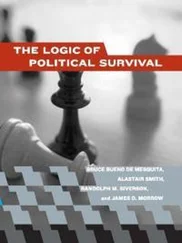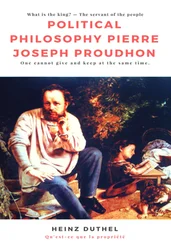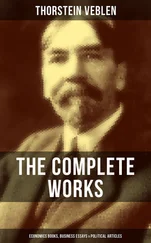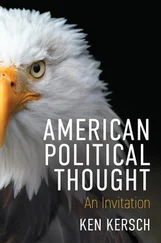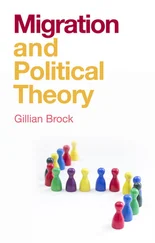Others might be looking at these thinkers and debates in an attempt to understand why, say, Republicans in the United States view the political world differently to Democrats, or why the Labour Party is distinct from the Conservative Party in the UK. So here, studying political theory might have a contemporary use as opposed to only historical interest. A key use for the history of political philosophy is to show the genesis of the ideas that we hold today, and illustrate the changes and variations that they have gone through over the years. Take democracy for example; it is perhaps useful to know that the system of liberal representative democracy with universal suffrage that is dominant in the contemporary world is distinct from the direct democracy with limited citizenship that was practised in its first incarnation in ancient Athens. Also thinkers such as Rousseau provide us with a vocabulary to critique contemporary democracy if we do not think it extends sufficiently far. When using this justification for studying the history of political thought, we should be wary of presentism, the notion that all history is leading up to us, and avoid viewing the past through our concepts and concerns.
Another way to study the history of political thought is to focus not on how our ideas have been shaped over time, but instead recognize just how different political concepts were in the past, and to use this as a critical activity. When women were completely ignored in politics, when, without irony, slave owners could write that all men were created equal, when others suggested that the monarch was put there by God and was the only person with any legitimate power, it is too easy to just say ‘how could they believe that’ and move on. The thing is that people did believe in these things; and they believed in them just as much as you or I believe in those political things that we believe in. The critical activity therefore rests in this; just as we are viewing ideas from the past with some incredulity, so too will people reading textbooks like this is a few hundred years look on us with amazement that we could think or act politically in a certain way. We should reflect on our beliefs and wonder what future generations will judge us harshly on. The history of political thought here is not history for its own sake, nor a history to show us how we became who we are, but rather a thought experiment urging us to be critical of the ideas commonly held today.
Activity 1.Outline three commonly held beliefs in society today that you feel a student of political theory in 500 years will find problematic.
(1)
(2)
(3)
Reasons to study the history of political thought
1 For simple historical interest
2 To see how the ideas we have today have developed
3 To acquire critical skills to assess our society
This book has been organized to be a useful study guide for anyone interested in learning about political theory, be they a school or college student, or an autodidact who wishes to learn the basics on their own. No prior knowledge is assumed on the part of the reader, so the hope is that if the subject interests you, you can just jump straight in.It is a book for everyone, not only for people with substantial existing knowledge on this subject, or for that matter, any other. Perhaps you are studying political theory as part of a course at college or university. Perhaps you have become interested in politics recently, and wish to learn about how some of the central figures of political theory have addressed the issues that you are now grappling with. Or perhaps you simply wish to learn about something new. Whatever your personal learning goal is, my aim in this book is to give you a good solid understanding of the basics of political theory, which you can then build upon perhaps by picking up the primary works of the thinkers discussed within these pages.
Attempts have been made throughout the book to give real-life examples of some of the dilemmas that we address in these pages, and these examples have been chosen with the aim of helping you understand a topic better, and show how the debate contained herein, is applicable to everyday life. Whereas political theory is quite an intellectual pursuit, we should never lose sight of the fact that it should be about real, everyday life; political theory should help us in everyday moral or ethical dilemmas, it should allow us to talk and think politically, and it should aid us in the ability to be good citizens and question political power wherever it may exist. We are not talking about abstract notions here; we are discussing things that happen around us every day.
The book has been organized around key political questions, questions such as ‘what is the nature of the just state?’, and ‘why should I obey the state?’ It is organized in this manner, rather than a thinker-by-thinker structure (i.e. a chapter on Plato, a chapter on Hobbes and so on) to allow you to see the contributions made by various philosophers to similar topics. This structure should better allow you to compare and contrast the thinkers, examine their views on similar topics, and therefore to adopt a critical attitude to their ideas, by showing how they would critique one another.
This book might look slightly different from similar textbooks on the history of political thought. You will not be faced with a wall of text, but rather you might notice some features which are unique to this book. Firstly, each chapter commences with some key questions which you might want to consider before starting the chapter proper. Then within each chapter, you will notice at various points certain keywords or phrases will be emboldened; this is because I feel that these points are crucially important to the discussion in hand. You will also notice small text boxes which give brief summaries of discussions scattered throughout each chapter, and larger text boxes which give you more information on an individual thinker that we are discussing, giving you brief biographical details and the like. You can dip in and out of these sections as best fits your method of learning.
Crucially there are also activities after every section within the book. These activities are designed to solidify your reading, and encourage you to reflect on what you have read. You may choose to do these activities as you read through each chapter, or you may like to do them when you have completed the chapter; it is up to you – do what you feel is best. At the end of each chapter are some text-based questions; these are, perhaps, slightly trickier than the activities contained within each chapter. The text-based activities contain some short excerpts from key texts discussed in the book, with some questions attached. I ask that you read the text, then attempt the questions.
Each chapter in this book, as mentioned above, is organized around a central question in the history of political thought. They are as follows.
What is the nature of politics?
We begin by examining what acting politically entails, or what should people engaged in politics do? We will find a large variety of responses across the history of political thought. This chapter will commence with a discussion of the Greek philosopher Socratesand his life and thought. He argued that the individual should always strive for knowledge of the virtues, and that the unexamined life is not worth living. There is something inherently human and vital to discussing the very type of questions that we will be tackling in this book together. We will then go on to examine the work of the Florentine writer Machiavelli, who will argue that the chief goal of any politician should be glory, both for themselves and for the state. If one achieves glory, you can be forgiven immoral acts you have committed along the way. The utilitarianschool of moral thinking will then be introduced, which posits that happiness, rather than glory, should be the driving feature of all government policy and political action. Immanuel Kantwill then be introduced as a counterbalance to both Machiavelli and the utilitarians. Politics must always bend the knee to morality for Kant, that is to say that acting morally is always more important that achieving glory and/or happiness. The chapter will conclude with a discussion of Max Weberand his guidance that passion is an insufficient quality to succeed in politics.
Читать дальше


